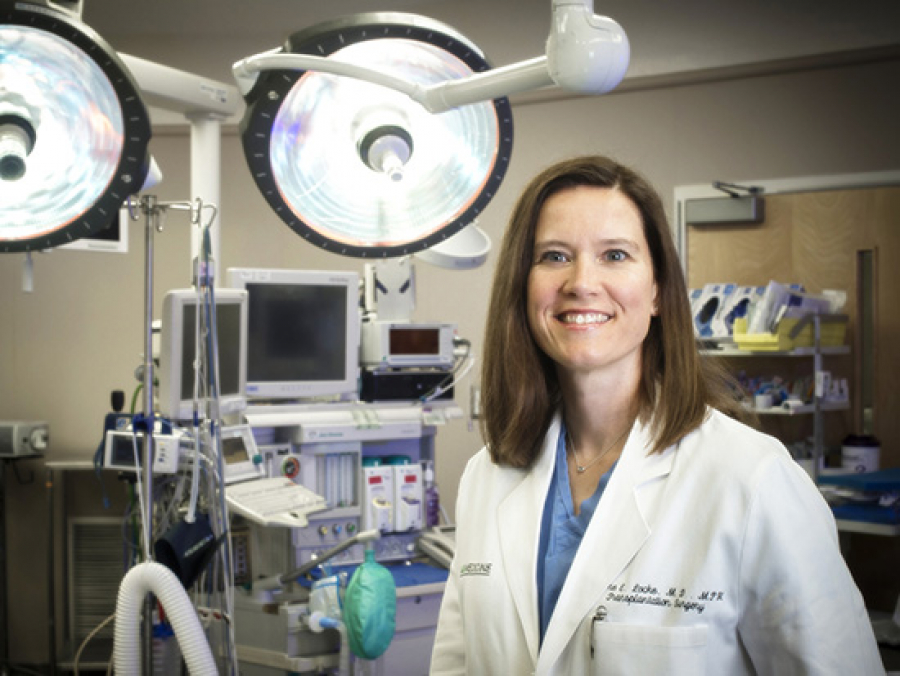Research & Innovation
The exosomes were secreted by cardiac cells derived from human induced pluripotent stem cells. These non-living exosomes may be an easier form of regenerative treatment than living cells.
Uncontrolled high blood pressure is a risk factor for heart attack and stroke.
A UAB communications expert explains how communication skills have changed during the COVID-19 pandemic quarantine.
In a new trial funded through UAB’s urgent COVID-19 research program, investigators are comparing the widely available steroid methylprednisolone with dexamethasone, which lowered risk of dying by one-third in a U.K. trial this summer.
Low or limited health literacy is common among adults in the United States and may affect health outcomes in many ways, according to the government’s Healthy People 2020.
Soft drink consumption is a likely predictor of aggressive behavior, according to a new study from UAB.
Amy Goss, Ph.D., RDN, says egg consumption can be incorporated into the diet in a healthful way without adversely impacting blood cholesterol in older adults.
UAB and Polish researchers propose that the COVID-19 virus acts as a microRNA “sponge” to deplete miRNA levels in ways that aid viral replication and stymie the host immune response.
The drug candidate is a non-toxic small molecule that given orally effectively rescued mice from models of Type 1 and Type 2 diabetes.
This study was done in mice and with a novel, tissue-engineered, three-dimensional breast cancer mimetic system.
New evidence for sex disparity in liver transplants suggests a change may be needed in how livers are allocated.
A mouse model and previous studies suggest that genetic intervention in SHANK3-related ASD may be most effective earlier in development.
This discovery may have clinical importance in management of heart failure.
A study conducted by UAB investigators has outlined the importance of strict blood pressure control in the development of atrial fibrillation, which can lead to poor outcomes such as stroke, heart attacks and death.
Gender identity and genetic sex are distinctly variable when it comes to pain tolerance, according to a study published in the Journal of Pain Research.
The study observed two diet types to test their impact on adolescents with non-alcoholic fatty liver disease.
Students are examining 60 variables, including sidewalk conditions, crosswalks, blighted properties and advertisements in four Birmingham communities.
Coronary microvascular dysfunction is a precursor to later heart disease, heart failure and possible death.
UAB orthopaedic surgeons report that the cost of orthobiologics, promising but not fully proven therapies, can vary widely across the nation.
Study points to a potential immediate treatment for this devastating disease.
Scientists are racing to determine which genealogy most accurately represents the evolutionary history of sea turtles — a challenging proposition.
Five-year, research-funding growth has grown by more than $154 million, marking a 34.4 percent increase in grants and awards won by faculty.
This study included preclinical experiments and use of bronchoalveolar cells from IPF patients.
This first-of-its-kind study aims to address this information gap by examining total net worth in conjunction with five components of wealth.
A new study blunts hopes that metformin might help exercising seniors gain more muscle mass.
Excess exposure to oxygen can cause long-term effects on preterm infants.
IgA nephropathy is the leading primary glomerulonephritis worldwide.
A team of UAB researchers found even a small influence from AAT dogs is meaningful and valuable to someone after a life-changing spinal cord injury.
UAB researchers have found a previously unknown gene variant that appears to contribute to movement disorders.
Historically, Americans have chosen conflict avoidance over violence in property rights.





























